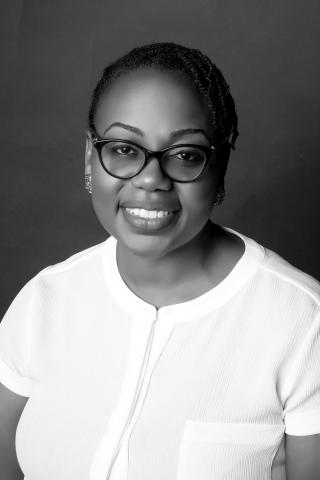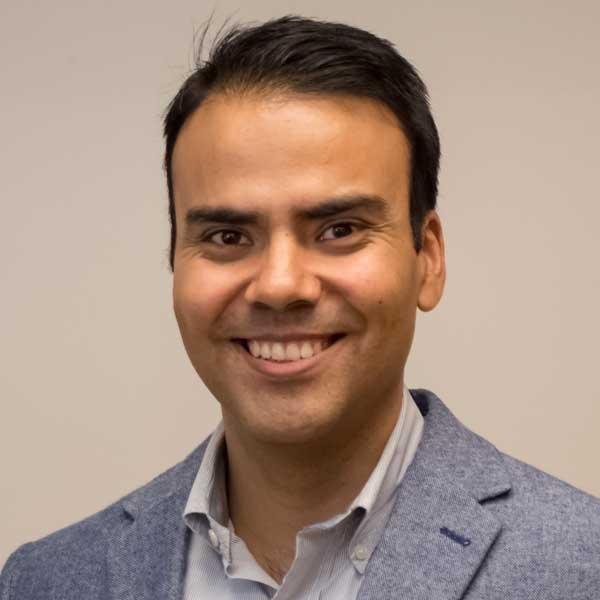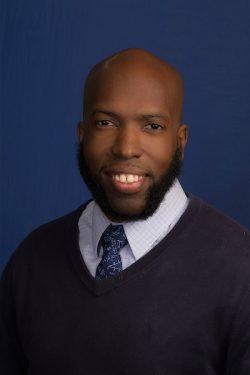
Blog
Putting Diversity, Equity, and Inclusion at the Center of Professional Development Training
As institutions, both academic and otherwise, express more interest than ever in increasing and supporting diversity, equity, and inclusion (DEI), trainings are becoming increasingly common. However, these are often developed and implemented separately from professional development activities. During our graduate training at Duke, we have come to see these two endeavors as inextricably intertwined, and argue that DEI training is an essential component of broader professional development for graduate students.
Why? Most major focal areas for professional development—e.g. leadership, management, mentorship, and advising—hinge upon interpersonal interactions. There is growing evidence that individual identity and group dynamics influence how effective and equitable these interactions are. In academia, for example, “hidden identities,” such as political affiliation, religion, and sexual orientation, can influence how included students feel in active learning settings and, consequently, their willingness to participate in such environments. Further, ignoring a mentee’s identities can reduce their feelings of belonging, which can in turn prevent mentees from fully utilizing their mentors. Thus, we think that putting explicit emphasis on DEI training is critical to help graduate students develop professional skills that allow them to engage with broad, diverse audiences—from students to mentees to employees—effectively and equitably on their chosen career paths.
As members of the Biology Graduate Student IDEA (inclusion, diversity, equity, and anti-racism) committee, we and our colleagues have begun to make efforts to explicitly integrate professional development and DEI training in the Duke Biology Department. In spring 2019, funding from The Graduate School’s Professional Development Grant and the Biology Chair’s fund allowed us to run a mini-series of three trainings focused on this intersection, aiming to explore how different people’s worldviews are, and how these difference impact learning, mentorship, and evaluation.

The first workshop focused on understanding how identity is shaped by culture, and how diverse cultural identities influence interpersonal interactions. Dr. Șeun Olámosù, at the time Associate Director of Duke’s International House, led participants through exercises to consider their values, examine how they are informed by culture, and reflect on how they might affect our work ethics. For example, are we culturally oriented to value individualism or collectivism more highly? Even among the three of us, who have been friends and colleagues for several years, these exercises unearthed interesting differences. For one, our “time orientations” differed; two of us are more future-oriented, while one is more present-oriented. These differences happened to correlate with the countries in which we were raised, but other differences were not so predictable. Among the two of us who were raised in the U.S., for example, one felt more oriented to individualistic human relationships, while the other felt more oriented to lineal (family-oriented) human relationships. Understanding that there are fundamental and equally valid worldviews on all of these (and other) cultural axes has direct implications for professional development. When designing projects and assignments, do we emphasize the outcome or the process? When overseeing or participating in group work, do we reward individual leadership or collaboration and cooperation? Do we expect, explicitly or implicitly, that our colleagues, students, and mentees share these values? Reflecting critically upon these questions helps in becoming a more sensitive and adaptable leader, teacher, and mentor.

Our second workshop, facilitated by Dr. Francisco Ramos, Assistant Dean for Assessment and Evaluation in The Graduate School, highlighted common weak points in evaluation criteria and how they are influenced by what our backgrounds have led us to think is important or impressive. For example, when working through a “value mapping” exercise focused on designing a hypothetical introductory-level biology course, we found that the broad set of ideas and learning outcomes we valued often overlapped when we were unconstrained. However, when forced to prioritize a few criteria to focus on and remove others, the “essential” components left in each of our courses differed considerably. At the time, we didn’t realize just how realistic and relevant this hypothetical exercise would be become just a year later; with the COVID-19 pandemic, we, like many other instructors, have had to creatively adapt our existing courses to online formats. Thinking through this process in advance helped us identify the most important values we want our modified courses to reflect. More generally, exercises like this also help us remain skeptical of our own perceived objectivity during evaluation, and to work to preemptively identify ways to reduce the degree to which we perpetuate our own values and biases during evaluation processes.

Finally, at the end of the semester, we hosted a guest lecture by Dr. Bryan Dewsbury, Gardner Institute Fellow and Assistant Professor of Biology at the University of Rhode Island, titled “The Promise and Practice of Inclusive Pedagogy.” His talk explored the importance of understanding local culture and considering the complexity of student identities while teaching. Drawing from his own experience learning about the African-American experiences of his students, which differed from his own experience growing up in Trinidad, Dr. Dewsbury shared insights about how to better see students and advisees as complex humans. Ultimately, he encourages teachers to center pedagogy around service to our unique student populations, in the broader cultural context of the specific geographic regions in which we live. Subsequently, several of us have switched to incorporating more ungraded assignments into courses to provide feedback to students on an individual level. Having regular check-ins with students throughout the semester allows us to keep in mind what our students’ own learning objectives are, and adjust our practices to better meet their needs.
In future trainings, we will continue to explore how difference impacts learning, mentorship, and evaluation. We hope that other departments and graduate programs at Duke will, too, as doing so benefits us all. Fostering ongoing conversations about diversity helps to build more equitable and inclusive work environments, but has benefits beyond professional settings, too. Further, by cultivating greater understanding of the many perspectives and worldviews around us, we can foster growth in our personal relationships, too. Thinking critically about how diverse identities influence interpersonal dynamics can help you become a more sensitive friend, caring neighbor, or patient family member as well as a better mentor, employer, and teacher.
Interested in practical tips for integrating DEI into your own department or group's programming? Read advice from these authors.
Author

Lauren Carley
Ph.D. candidate, Ecology
Lauren Carley is a Ph.D. candidate in the Duke University Program in Ecology. She studies how ecological interactions influence the evolution of biodiversity: specifically, diverse plant traits and the genes that underlie them. In addition, she also spends a fair amount of time thinking about human diversity within science (and beyond), and how we can work to promote, maintain, and increase it.

Karla Sosa
Ph.D. candidate, Biology
Karla Sosa is a Ph.D. candidate in the Biology Department. She is interested in how plants spread across large areas on the scale of continents: are there certain characteristics that make it easier for them to move into new places? She also likes to classify things, so much of her work is centered on organismal taxonomy. As a third-culture kid, she thinks a lot about how culture influences our values and how we can take advantage of them to create equitable and inclusive communities.

Brandie Quarles
Ph.D. candidate, Biology
Brandie Quarles is a Ph.D candidate in the Biology Department. She is broadly interested in how stressful and/or variable environments influence plant physiology, phenology, survival, and reproduction. At Duke she is investigating how plants can respond to climate change and habitat fragmentation by dispersing spatially and/or by controlling the timing of developmental events. As a woman of color, she also engages with the community often to increase STEM exposure, recruitment, and retention among underrepresented groups.